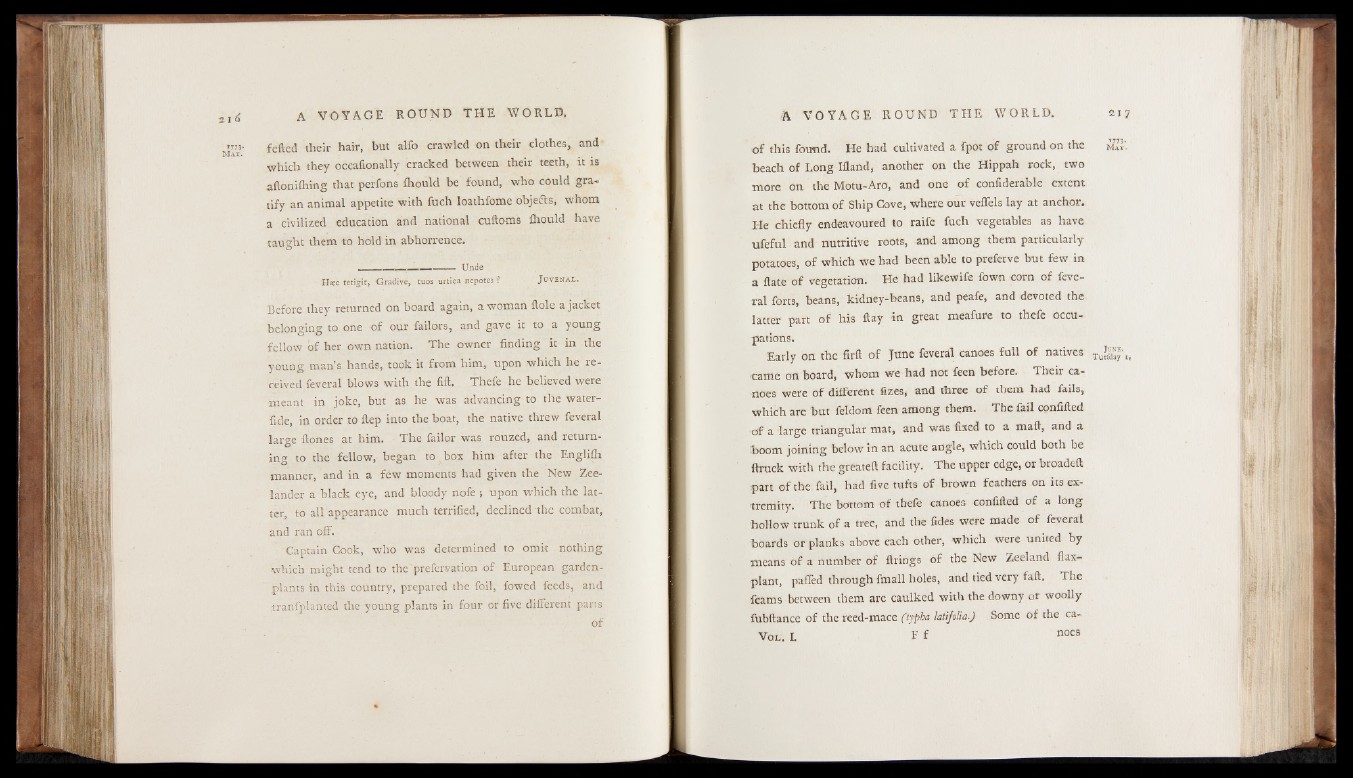
2 1 6
'773- fefted their hair, but M alfo crawled on their clothes, and ax. 7 ^ #
which they occafionally cracked between their teeth, it is
aftonilhing that perfons lliould be found, who could gratify
an animal appetite with fuch loathfome objects, whom
a civilized education and national cuftoms fliould have
taught them to hold in abhorrence.
Hsc teti'git, Gradive, tuos urtica nepotes f J uvenal.
Before they returned on board again, a woman Hole a jacket
belonging to one of our failors, and gave it to a young
fellow of her own nation. The owner finding it in the
young man’s hands, took it from him, upon which he received
feveral blows with the fill. Thefe he believed were
meant in joke, but as he was advancing to the water-
fi.de, in order to ftep into the boat, the native threw feveral
large Hones at him. The failor was rouzed, and returning
to the fellow, began to box him after the Englifh
manner, and in a few moments had given the New Zeelander
a black eye, and bloody nofe ; upon which the latter,
to all appearance much terrified, declined the combat,
and ran off.
Captain Cook, who was determined to omit nothing
which might tend to the prefervation of European garden-
plants in this country, prepared the foil, fowed feeds, and
tranfplanted the young plants in four or five different parts
of
of this found. He had cultivated a fpot of ground on the m” v.
beach of Long Ifland, another on the Hippah rock, two
more on the Motu-Aro, and one of confiderable extent
at the bottom o f Ship Cove, where our veffels lay at anchor.
He chiefly endeavoured to raife fuch vegetables as have
■ ufeful and nutritive roots, and among them particularly
potatoes, of which we had been able to preferve but few in
a ftate of vegetation. He had likewife fown corn of feveral
forts, beans, kidney-beans, and peafe, and devoted the
latter part of his flay in great meafure to thefe occu-
pations.
Early on the firft of June feveral canoes full of natives
came on board, whom we had not feen before. Their canoes
were of different fixes, and three of them had fails,
which are but feldom feen among them. The fail confided
■ of a large triangular mat, and was fixed to a maff, and a
boom joining below in an acute angle, which could both be
ftruck with the greateft facility. The upper edge, or broadeft
part of the fail, had five tufts of brown feathers on its extremity.
Tire bottom of thefe canoes confifted of a long
hollow trunk of a tree, and the fides were made of feveral
boards or planks above each other, which were united by
means of a number of firings of the New Zeeland flax-
plant, palled through fmall holes, and tied very fall. The
feams between them are caulked with the downy or woolly
fubftance of the reed-mace (typha latifolia.) Some of the ca-
Vol. I. F f noes